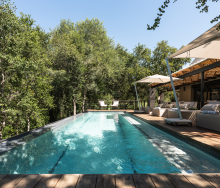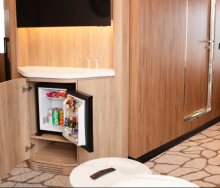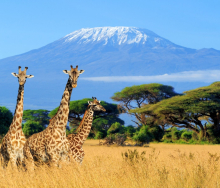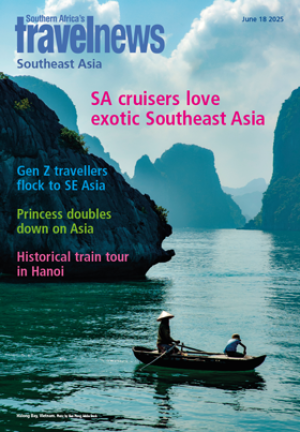ENVIRONMENTAL non-government organisations (NGOs) are opposing the KwaZulu Natal Nature Conservation Board's (KZNNCB) "preferred site" for the development of a 200-bed accommodation camp within the Hluhluwe-Umfolozi Park, their main concern being that it falls within a protected area.
This was raised during the public meeting held on April 4, which a number of interested and affected parties were invited to attend and which no-one in the travel and tourism industry attended.
"It therefore appears as if there is an overwhelming opposition to this site," Jeff Gaisford, communication officer for KZN's Nature Conservation Service (NCS), told Travel Now.
According to him, no decision was taken at the meeting and interested parties still have until April 24 to submit comments and proposals.
Carol Murphy, conservation planner for the NCS, says the environmental groups are lobbying for a boundary site, but these have been rejected by the travel industry due to visitors' "safety and security considerations'.
Another problem with a boundary site is the aesthetic impression. Murphy says, "We feel that visitors to the camp simply won't get the nature experience of the reserve if they open their window and see railway lines and other industrial developments."
Further identified sites have been rejected by the respective Tribal Authorities due to "the negative influence of rural settlement on tourism development".
Murphy told Travel Now that a lot of thought had gone into determining the preferred site, once nine other sites had been rejected.
"We took into consideration the fact that it is a protected area and we believe that the area can be environmentally sustained in the long-term, despite the development".
She says a 200-bed camp is required in order to meet the demand for accommodation generated by the tour group market.
"The economies of the scale of the camp will allow for a range of accommodation options to be developed, which will suit both the local and international market."
The option of developing several smaller camps in the area has also been rejected following an independent study which indicated that the costs of building smaller camps would be a lot higher and that the environmental impact would also be far greater.
Copies of the map and identified sites, as well as the comments and the outcome of the independent studies are available from Carol Murphy at +27 33 845-1999.
(Adele Mackenzie)













